 View current news articles, commentary, videos and more that have an impact on Jewish culture, politics and religion at Rabbi Silverman's Sites to See
View current news articles, commentary, videos and more that have an impact on Jewish culture, politics and religion at Rabbi Silverman's Sites to See
In our contemporary American milieu, we begin January as a new chapter, with a batch of resolutions for the New Year. Similarly, with the departure of our beloved Chazzan, we at ENJC are also beginning a new chapter. And, according to Jewish tradition, every day is an opportunity for a new chapter, a potential for teshuva–a return to the correct path and to good living. Even God starts a new chapter each day, as the siddur claims, Hamechadesh bechol Yom Maaseah beresheet–we are awestruck at our God who each day 'creates the world anew.' With this in mind, there are four resolutions we can adopt into our Jewish lives, based on major themes in the portions we read in each of our January Shabbats. Perhaps you will embrace all or some of these opportunities.
In Miketz, which we read on December 30th, Joseph is appointed vizier of Egypt and devises a way to save the Near East from drought and hunger. Through his foresight and vision, suffering is alleviated and lives are saved. Let’s resolve, this new year, to make certain to redouble our efforts in supporting major organizations like Mazon, and make a personal effort to combat hunger by working with HIHI and with Long Island Harvest soup kitchens and food pantries, so as to minimize hunger for those who live locally.
In Vayigash, read on January 7, Joseph recognizes the repentance and improvement in his brothers, and reveals that he is their long-lost brother and that they must stop beating themselves up for past wrongdoings against him. Similarly, in our lives, we may have run-ins and moments of disagreement that turn ugly. This year, can't we perhaps turn to a loved one and forgive? Can't we gain a new perspective and maturity for a feud for which we may not even remember its' origin? Years may go by and affection may grow colder. Instead, love and let live. Forgive and forget. Reveal your real face to family and friends–a face that seeks to embrace rather than to estrange.
In Vayechi, which we read on January 14, we see an acme of pure love in the behavior of one of Jacob's grandsons, Menasseh, when he receives a lesser blessing from his grandfather than his younger brother, Ephraim. Jacob crosses his arms and knowingly puts his right hand on the head of Ephraim, even though he is the younger, saying that the younger brother will be greater than the elder Menasseh. In fact, the entire book of Genesis is about the jealousy of brothers: Cain and Abel, Ishmael and Isaac, Jacob and Esau Joseph and his brothers. But Menasseh isn't jealous. He is happy for his brother. That is why, on Friday night, we bless our sons to be like Menasseh and Ephraim. These brothers broke the cycle of envy. May we resolve this year to break our cycle of envy, and when we catch ourselves coveting the blessings of others, let's make sure to count the many that we have.
On January 21, we read from the portion of Shemoth. We are introduced to Moses, who runs away from Egypt as a fugitive, and assumes the role of a shepherd. Moses needs to be convinced that he can be so much more. Yet he resists his calling and his talents, not believing in himself. God puts a staff in his hand and says, "Just do it." Moses finds his stride, and boy does he. This might be a lesson for all of us who are perfectionists or are too hard on ourselves. This year don't talk yourself out of trying for a new level of achievement, a new skill, or a new hobby. Don't settle for the familiar. Bring it on. You may fail but you have to believe in yourself and make that effort. You, like Moses, might surprise yourself with your talents if you do!
Finally, on January 28 we learn about parashat Vaera. In it, we see the plagues brought on by God for the willful disregard of God’s creations by the Pharaoh in his decimation of crops, trees, earth, air and water. These days, we are also conscious of the plagues brought upon our air, water, soil, and crop through the poor policies of leaders of many nations. The rise of our coastal waters is now beginning in Florida. Coral and algae resources in our oceans are under threat. The stability of soil is compromised by erosion, and deforestation continues. It is no longer God plaguing the planet; it is humankind and our leadership. Let us be the Moses and Miriams of the world and say, "Let my planet go." The enslavement of exhaustible resources, such as fossil fuels, both soils the air we breathe and threatens the earth, mountains, and water through mining. Let's speak out to our leadership, “truth to power.” We have the whole world in our hands. Let's bequeath it intact to our grandchildren through the policies we demand of our leaders.
I know that New Year's Day resolutions are not a part of Jewish practice, but since we partake of American customs, let’s customize them in Jewish fashion. Let's help those who hunger more, forgive and embrace more, covet less, believe in ourselves a bit more, and protect natures bounty into the future. And to this, let us say Amen.
